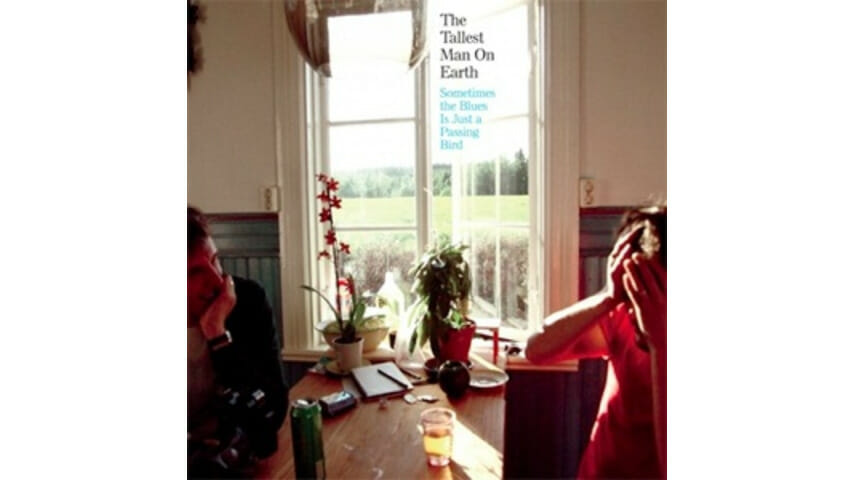The Tallest Man on Earth: Sometimes the Blues is Just a Passing Bird

Another dose of sparse, acoustic daydreaming—still pensive, gorgeous, mysterious
One thing missing from a lot of music today is mystery. In the pre-Internet days—before everything was leaked and available for anticipation-killing preview at the click of a mouse weeks before its scheduled release, back when there were special midnight record sales and fans so badly wanted a new album that they camped out in record-store parking lots to be first in line—people used to buy a lot of music based on nothing more than an intriguing album cover, say Pink Floyd’s Wish You Were Here, or a bizarrely awesome band name, like The Jesus Lizard. As a music lover interested in discovering something new and amazing, the safe bet was that any album with a cover featuring two businessmen shaking hands while one bursts into flames—or by a band with a name that enigmatically juxtaposed the Christian savior and a menacing reptile—was going to kick some serious ass. But nowadays, that kind of mystery is much harder to find—it’s been eaten away by gross overexposure, from the relentless blog coverage of artists’ personal lives, and from way too much social networking; we’ve been granted too many peeks behind the curtain, revealing that the once-powerful Wizard of Rock is really just some geeky dude strumming a six-string from behind an increasingly torn and frayed curtain. We know far too much about our musical heroes today. To the point that it detracts from their art.
Which is one of many reasons I love the Tallest Man on Earth. After researching online, the only thing I know about about him is that his real name is Kristian Matsson, and that he’s a 27-year-old Swede who used to play in some band called Montezumas. There are no personal details on his Facebook page or elsewhere. He’s like smoke wafting in the ether—try to grasp him, and he slips through your fingers. Sure, he has a Twitter page. But if you go to it, there is nothing there, save for a tiny picture of the artist that’s been cropped to cut out his face. There are no posts. In fact, the only tweets coming from Matsson are the sounds of the birds he occasionally uses as a backdrop for his impressionistic acoustic ballads.
The Tallest Man on Earth’s new five-song EP is a lot like a flash-fiction version of his full-length debut, Shallow Graves, which means we get only 17 minutes of music. But despite its extreme brevity, Sometimes the Blues is Just a Passing Bird is still a wholly satisfying suite of sparse, moody, pensive tunes, immaculately fingerpicked as if simultaneously conjuring Mississippi John Hurt, Paul Simon and early Dylan. There is one slight departure—on “The Dreamer,” Matsson puts his trusty acoustic back in the case, and plugs in a slightly overdriven electric to accompany his quivering, daydreamy voice. Still, he remains as reflective, autumnal and timeless as ever.
-

-

-

-

-

-

-

-

-

-

-

-

-

-

-

-

-

-

-

-

-

-

-

-

-

-

-

-

-

-

-

-

-

-

-

-

-

-

-

-








































